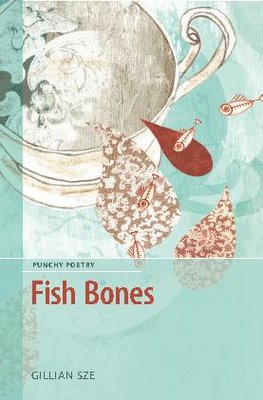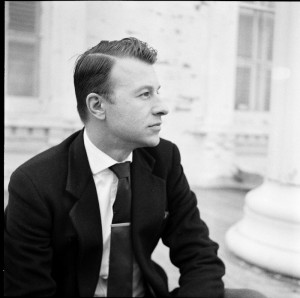 In the interest of full disclosure, I must admit that I love Gillian Sze. Not in a “we’re romantically involved” kind of way, but yes, we were classmates at Concordia University for our undergraduate degrees in Creative Writing, and from the first moment I read her work, I knew she was a great writer. So you’ll have to forgive me if I gush over her first book of poetry, Fish Bones (published by DC Books’ Punchy Poetry imprint), because I’ve always had a bit of a girl crush on her.
In the interest of full disclosure, I must admit that I love Gillian Sze. Not in a “we’re romantically involved” kind of way, but yes, we were classmates at Concordia University for our undergraduate degrees in Creative Writing, and from the first moment I read her work, I knew she was a great writer. So you’ll have to forgive me if I gush over her first book of poetry, Fish Bones (published by DC Books’ Punchy Poetry imprint), because I’ve always had a bit of a girl crush on her.
Hopefully that doesn’t sound totally creepy and stalkeresque. I just mean that I am in love with her words, and have always hoped she would go on to publish and get the larger recognition she deserves. So obviously, I am biased in favour of liking this book of poetry, even though I’m not exactly poetry’s Biggest Fan.
In a previous review of Gillian’s chapbook, This is the Colour I Love You Best (2007), I said that her work “[made] me regret everything negative I’ve ever said about poetry.” I feel very strongly that she’s a people’s poet, or would be if more people were willing to give poetry a chance. She’s great at capturing details and emotions with an artist’s eye. She also doesn’t get melodramatic, or seek to confuse her audience by leaving things out. Instead, she presents unusual images that allow readers to make of them what they will.
When done well, good poetry appears effortless. Sze’s poetry definitely seems as though she has strung words easily together, like the salmon bones threaded on a bracelet from the books’ title piece, “Playing Fish Bones.” Though she may downplay her work’s significance as “My feeble crusted offerings: / striving for sweetness” (as in “Cantaloupe”), each snapshot is actually quite deeply meaningful.
Perhaps my favourite poem in the collection is “fragmented,” which describes a woman who sees herself in bits and pieces throughout the city she calls home. It is at times narcissistic, though mostly in a bittersweet mood, the piece describes the narrator’s lack of identity. The city, she says, has her by the ankles; it has wrestled her self from her. Yet the city has also made her useful, perhaps in ways she never could have dreamt, as when a bird has created a nest from strands of her hair, “so I now live in the trees, / curled beneath the fledglings […]”. I particularly like the image of the narrator as “part-statue / part church-top.” Her reflections are everywhere, in everything ordinary and sublime.
Like her poetic persona, Gillian Sze is everywhere at once; the poet whose eyes see right through you, but expose your weaknesses with tenderness.
Toronto- and Winnipeg-based writers, come hear Gillian read from Fish Bones this July and August.



